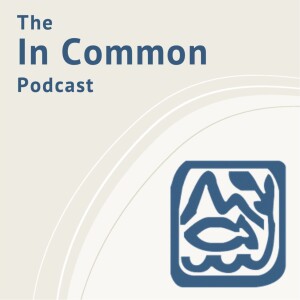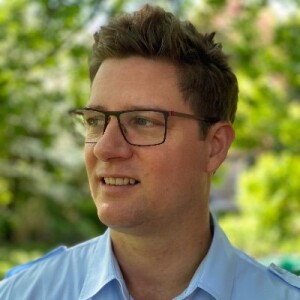In this episode, Divya Gupta speaks with Dr. Daniel Miller. Dan is an Associate Professor in the School of Global Affairs at the University of Notre Dame and has been extensively working on the socio-economic, ecological, and political dimensions of forests in tropical countries.
In this conversation, they focus on Dan’s projects on conservation legacy and his other project looking at the role of forests as pathways out of poverty. Later in the episode, they also discuss Dan’s new role as the coordinator of FLARE, which stands for Forest and Livelihoods Assessment, Research, and Engagement.
For his project on conservation legacies, the projects that Dan started as a graduate student in the west Africa region at W National Park, a park that spreads across the countries of Benin, Niger and Burkina Faso, Dan focussed on how protected area governance interfaces with international aid. Interaction on this topic was a great way to explore the critical question of what conservation funding really does for people and protected areas in tropical countries. Dan shares that international aid has disproportionate impacts on people; while it provides new sources of income to some with the creation of jobs in the areas like park management, monitoring, and tourism, these opportunities only extend to some in the community. In fact, with the implementation of conversation projects, and many lose access to the forest, thereby creating more challenges for them. Dan suggests that this happens because the aid has a tendency of what he refers to as— ‘missing the middle’. When implemented, he says that the aid programs often tend to partner with the national government, national park agencies, and forest departments, but rarely or never with the local governments. He says this is a problem because these local governments have a bigger impact on people’s lives. As Dan continues to extend his work on conservation legacies in other countries like Bhutan, Peru, and Madagascar, he is finding that while external intervention in the form of aid in conservation in low-income countries is important, it works best when it is inculcated in the local governance structures and can bring clear benefits to people.
In the discussion on Dan’s parallel project on forest-poverty relationships, where he is working with a large team of scholars looking at the impacts that forests can have on poverty alleviation in low-income countries. Dan shares that the greater vision that he has for this project is to highlight how forests can serve as pathways to prosperity. He suggests that changing the framing of forests for prosperity is important because in the larger policy discourse benefits of the forests is mostly linked to carbon sequestration when the reality is that forests provide critical socio-economic benefits to especially people in low-income countries. Dan emphasizes that it is important to mainstream these benefits.
In the end, they discuss Dan’s new role as a coordinator of FLARE. He talks about how the FLARE community has been catalytic for him in establishing networks and collaboration for meaningful research. He shares that as a coordinator, he aims to retain the great sense of community that FLARE already has and grow the community by opening to new partners like practitioners, donors, activists, and local community members.
References:
Miller, D.C., Mansourian, S., Gabay, M., Hajjar, R., Jagger, P., Kamoto, J.F., Newton, P., Oldekop, J.A., Razafindratsima, O.H., Shyamsundar, P. and Sunderland, T., 2021. Forests, trees and poverty alleviation: Policy implications of current knowledge. Forest Policy and Economics 131: 102566.
Miller, D.C. Rana, P., Nakamura, K., Irwin, S., Cheng, S.H., Ahlroth, S. and Perge, E. 2021. A global review of the impact of forest property rights interventions on poverty. Global Environmental Change 66: 102218.
Miller, D.C., R. Hajjar. 2020. “Forests as Pathways to Prosperity: Empirical Insights and Conceptual Advances.” World Development 125: 104647.
Miller, D.C. 2014. “Explaining Global Patterns of Aid for Linked Biodiversity Conservation and Development.” World Development 59: 341-359.
Miller, D.C., A. Agrawal, and J.T. Roberts. 2013. “Biodiversity, Governance, and the Allocation of International Aid for Conservation.” Conservation Letters 6(1): 12-22.
Agrawal, A., Chhatre, A., & Gerber, E. R. (2015). Motivational crowding in sustainable development interventions. American Political Science Review, 109(3), 470-487.
Oldekop, J. A., Holmes, G., Harris, W. E., & Evans, K. L. (2016). A global assessment of the social and conservation outcomes of protected areas. Conservation Biology, 30(1), 133-141.
Persha, L., Agrawal, A., & Chhatre, A. (2011). Social and ecological synergy: local rulemaking, forest livelihoods, and biodiversity conservation. science, 331(6024), 1606-1608.
More Episodes
Science and Practice #5: Radical Alternatives to Development with Ashish Kothari
 2023-01-11
2023-01-11
 595
595
Insight Episode #47: Nejem Raheem on water rights in the New Mexico acequias
 2023-01-06
2023-01-06
 246
246
Insight Episode #46: Arun Agrawal on top down v. bottom up governance
 2022-12-16
2022-12-16
 342
342
111: Fisheries policy and catch shares with Dan Holland
 2022-12-13
2022-12-13
 450
450
IJC#10: Picking a bone with Elinor Ostrom? A conversation with Landon Yoder & Courtney Hammond Wagner
 2022-12-05
2022-12-05
 552
552
110: Carbon markets with Danny Cullenward
 2022-11-28
2022-11-28
 481
481
Insight Episode #45: Courtney Carothers on the importance of indigenous knowledge systems
 2022-11-18
2022-11-18
 264
264
108: Localizing development with Esther Zeledon
 2022-11-07
2022-11-07
 436
436
107: Zoning policy with William Fischel
 2022-10-31
2022-10-31
 497
497
Insight Episode #44: Derek Kauneckis on watersheds and smart tech
 2022-10-28
2022-10-28
 224
224
106: The Surrounds with AbdouMaliq Simone
 2022-10-24
2022-10-24
 491
491
105: The Rights of Nature with Julia Talbot-Jones
 2022-10-17
2022-10-17
 407
407
IJC#9: Magical realism, water and power with Valentina Fonseca Cepeda
 2022-10-10
2022-10-10
 556
556
IJC#8: Blockchain networks as knowledge commons with Ilia Murtazashvili
 2022-09-27
2022-09-27
 317
317
Insight Episode #43: Hillary Angelo on social imaginaries
 2022-09-23
2022-09-23
 275
275
104: Creating Knowledge for Change with Sharachchandra Lele
 2022-09-19
2022-09-19
 351
351
103: Gathering tides with Mehana Blaich Vaughan
 2022-09-12
2022-09-12
 538
538
Insight Episode #42: Graeme Cumming on scale mismatch and mismanagement
 2022-09-09
2022-09-09
 254
254
IJC#7: Sacred groves (or commons with a difference) with Samuel Adeyanju
 2022-09-06
2022-09-06
 351
351
Create your
podcast in
minutes
- Full-featured podcast site
- Unlimited storage and bandwidth
- Comprehensive podcast stats
- Distribute to Apple Podcasts, Spotify, and more
- Make money with your podcast
It is Free
You may also like

The Poetry of Science


Behavioral Grooves Podcast


Hidden Brain


Something You Should Know


The Psychology Podcast


- Privacy Policy
- Cookie Policy
- Terms of Use
- Consent Preferences
- Copyright © 2015-2024 Podbean.com




 iOS
iOS Android
Android